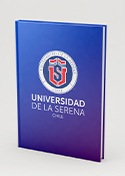The Low-redshift Lyman Continuum Survey: Optically Thin and Thick Mg ii Lines as Probes of Lyman Continuum Escape

Date
2023/02/01
Journal Title
Journal ISSN
Volume Title
Publisher
IOP Publishing Ltd
Abstract
The Mg ii lambda lambda 2796, 2803 doublet has been suggested as a useful indirect indicator for the escape of Ly alpha and Lyman continuum (LyC) photons in local star-forming galaxies. However, studies to date have focused on small samples of galaxies with strong Mg ii or strong LyC emission. Here, we present the first study of Mg ii to probe a large dynamic range of galaxy properties, using newly obtained high-signal-to-noise, moderate-resolution spectra of Mg ii, for a sample of 34 galaxies selected from the Low-redshift Lyman Continuum Survey. We show that the galaxies in our sample have Mg ii profiles ranging from strong emission to P-Cygni profiles to pure absorption. We find that there is a significant trend (with a possibility of spurious correlations of similar to 2%) that galaxies that are detected as strong LyC emitters (LCEs) show larger equivalent widths of Mg ii emission, while non-LCEs tend to show evidence of more scattering and absorption features in Mg ii. We then find that Mg ii strongly correlates with Ly alpha in both equivalent width and escape fraction, regardless of whether emission or absorption dominates the Mg ii profiles. Furthermore, we show that, for galaxies that are categorized as Mg ii emitters, one can use the information of Mg ii, metallicity, and dust to estimate the escape fraction of LyC within a factor of similar to 3. These findings confirm that Mg ii lines can be used as a tool for selecting galaxies as LCEs and thus serve as an indirect indicator for the escape of Ly alpha and LyC.
Description
Keywords
STAR-FORMING GALAXIES, MEAN FREE-PATH, LY-ALPHA, CENT LEAKAGE, REIONIZATION, EMISSION, COMPACT, PHOTONS, FRACTIONS, EVOLUTION